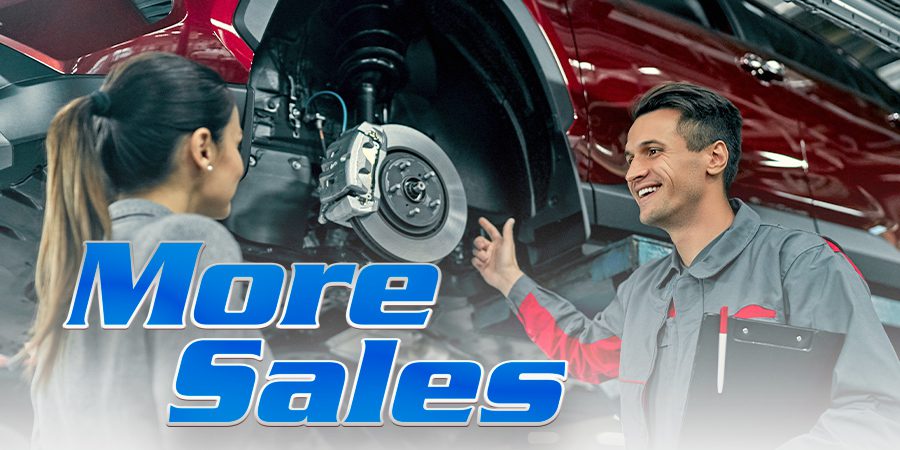In every auto repair buying situation the buyer is concerned about Trust. They want a bargain price, quick, reliable service, and a technician they can trust.
But how do they decide whether they can trust you? They look for symptoms just like a doctor would. If the condition is present, there will be symptoms to indicate it.
What are the “symptoms” of Trustworthiness?
- Consistency – Your messages, reactions and answers don’t change from one conversation to the next. They see the pattern of sameness as evidence of truth, or at least sincerity and clarity. When your shop’s policies are clear, and you are aware of the costs in time and money of doing each procedure, then you will have the same answers each time a question arises. Know Your Shop.
- Integrity – This means that everything fits together as it should. Like the integrity of a transmission. If one tiny bit of it isn’t as it should be, then there’s a bigger problem. The same is true from the customer’s view. If you are disrespectful to your coworkers, sloppy about the paperwork, messy at your workstation, unconcerned about trash in your parking lot, slovenly in your personal appearance, or disrespectful to their car’s appearance or cleanliness, then something else might go wrong too.
- Openness – People notice when we delay in telling the truth. That little pause is often seen as “making up an answer” instead of telling it like it is. If someone asks, “Will this be expensive?” If the answer is yes, then say so. “It might well be expensive. But let’s finish the diagnosis before we calculate the cost.”
People often think that “telling the truth” means being blunt or rude.
That’s just being a jerk. Telling the truth is about telling, honestly, what is relevant and important. If the “truth” is that they have bad breath, you don’t need to mention it. It’s not relevant to their repair. - Attentiveness – Make sure that you show attention to the customer. It is said that the most “Thanked” thing in many retail stores is…the cash register. The employees ring up the sale and then they say Thank You while looking at the cash register. Customers notice this. Pay attention to the customer. They are your clients. The car is simply the product they brought to you. When you don’t occasionally look people in the eye, they suspect that you don’t care about what they are saying. Eye contact generates more trust and more sales.
- Context – When talking about the car be sure to speak in Customer Language. Words they will understand. A seal or a flow control valve may be obvious to you but confusing to them. Give brief and simple descriptions. Be patient when they don’t understand. They aren’t questioning your integrity or knowledge; they just don’t get it. So, help them.
- Intuition – Did you ever meet someone and instantly feel that you could not trust them? Everyone does. It comes from a combination of micro messages we get from people’s behavior and appearance. Author Malcomb Gladwell calls this “Thin Slicing”. Bits of information that are so minor that we don’t consciously notice them but, taken together, subconsciously we form a conclusion.
- Reputation – AKA, Social Proof. When others speak well of you it generates trust. And people do check to see what others say about you. The comments on your social media pages all add up to “trustworthy” or “watch out!”
Notice that ALL the items above are within your control. They can be shaped and influenced by you. Do every one of these and trusting you becomes natural.
Consider, if you were going into a shop, and you saw all seven positive indicators, wouldn’t you feel safe and confident in doing business there? So will your customers.














